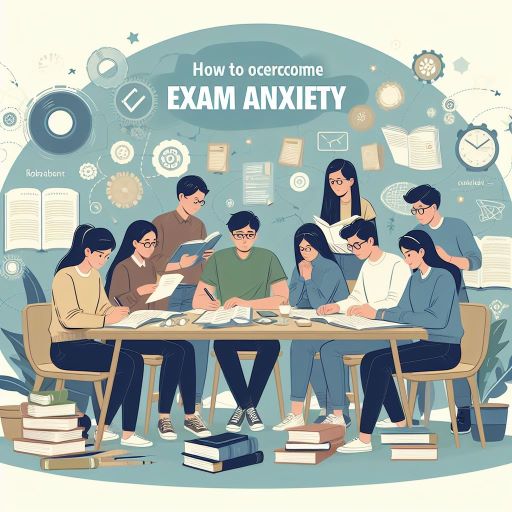Addressing Exam Anxiety and Nervousness: Practical Tips for NEET Aspirants

Feeling a mix of excitement and anxiety as you start the path towards your NEET exam is normal. It’s normal that you might feel pressure to perform well on the NEET exam because it’s a significant step toward realizing your dream of becoming a doctor. It’s crucial to keep in mind, too, that anxiousness is a typical occurrence for many students taking tests with significant stakes, such as the NEET.
we aim to provide you with practical tips and strategies to help you navigate through exam anxiety and nervousness effectively. By incorporating these techniques into your preparation routine, you can not only manage your stress levels but also optimize your performance on the exam day. So, take a deep breath, relax, and let’s embark on this journey together towards conquering exam anxiety and achieving success in NEET.
Table of Contents
Introduction:
As a means of admission to esteemed medical colleges, the National Eligibility and Entrance Test, or NEET, is an important test for aspirants to the Indian medical field. However, NEET applicants frequently experience anxiety and nervousness as a result of the pressure to perform well. In order to help NEET applicants approach the exam with confidence and poise, we’ll look at some doable tactics in this blog to help them get over exam anxiety and uneasiness.
Also read: How to maintain consistency in Neet preparation in 2024
1.Understanding Exam Anxiety:
Exam anxiety is a typical occurrence that manifests as uneasiness, fear, and concern either before or during the exam. It can show up as cognitive symptoms like negative thoughts, self-doubt, and trouble concentrating, as well as physical symptoms like perspiration, trembling, fast heartbeat, and gastrointestinal problems. To effectively manage exam anxiety, one must first recognize its symptoms
2.Cultivating a Positive Mindset:
Positivity is one of the most effective ways to combat exam anxiety. Consider shifting your perspective to concentrate on your accomplishments, strengths, and previous triumphs rather than on prospective failures or worst-case situations. Envision yourself thriving during the test, picture yourself at ease and self-assured, and use constructive self-talk to validate your skills. Having a positive outlook before the test might help reduce anxiety and boost your self-esteem.
3.Practicing Relaxation Techniques:
Including relaxation methods in your everyday routine can assist in lowering your stress and anxiety levels. Deep breathing, progressive muscle relaxation, mindfulness meditation, and visualization are a few methods that help induce calmness, promote relaxation, and release physical tension. To develop a feeling of inner calm and peace, consistently apply these approaches, particularly in times of increased anxiety.
4.Establishing a Study Routine:
An organized study schedule helps lessen anxiety and feelings of uncertainty by giving one a sense of security and control. Divide your study timetable into digestible portions, establish clear objectives for each study session, and set aside time specifically for review, mock exams, and unwinding. Prior to the exam, you can feel more prepared and assured of your skills by establishing a regular study schedule.
5.Setting Realistic Expectations:
It’s critical to have reasonable expectations for both the exam and yourself. Recognize that feeling worried before a test with as much stakes as the NEET is normal, but it also doesn’t guarantee that you’ll perform poorly. Instead of striving for perfection, concentrate on doing your best and set realistic goals based on your skills and degree of preparation. Remind yourself that your worth is not established by your exam performance, and that there are other paths to success in life.
6.Practicing Mindfulness:
Being mindful entails living in the present moment to the fullest, free from judgment and attachment to feelings or ideas. Through the practice of mindfulness practices like body scans, focused breathing, and mindful walking, you can develop resilience and inner calmness to cope with exam-related stress. In addition to helping you stay grounded and focused throughout the test, mindfulness can also help you stay clear-headed and focused in the face of outside distractions.
7.Seeking Support:
Do not be afraid to ask for help if you are experiencing anxiety related to exams. Discuss your feelings and worries with friends, family, mentors, or teachers, and rely on their support and advice. Think about getting professional assistance from a therapist or counselor who can offer you support and coping mechanisms that are specific to your needs. Remind yourself that you are not alone and that it is acceptable to request assistance when need.
Conclusion:
NEET applicants frequently struggle with exam anxiety and uneasiness, but these issues don’t have to ruin your performance or preparation. You can effectively manage exam-related stress and approach the NEET exam with confidence and composure by understanding the nature of exam anxiety, developing a positive mindset, practicing relaxation techniques, creating a study routine, setting realistic expectations, engaging in mindfulness practices, and asking for help when necessary.
Recall that your value is not determined by how well you perform on exams and that you are capable of overcoming obstacles and realizing your objectives. You may pass the NEET exam with poise and resiliency if you have the correct attitude, study techniques, and support network in place. This will open doors to a successful career in medicine.
Related Post:
Neet and ethics: understanding the importance of professionalism in medicine
NEET Preparation Guide for Non-Medical Background Students: Roadmap to Success
Unlocking Success: NEET Preparation Strategies for Every Learning Style

